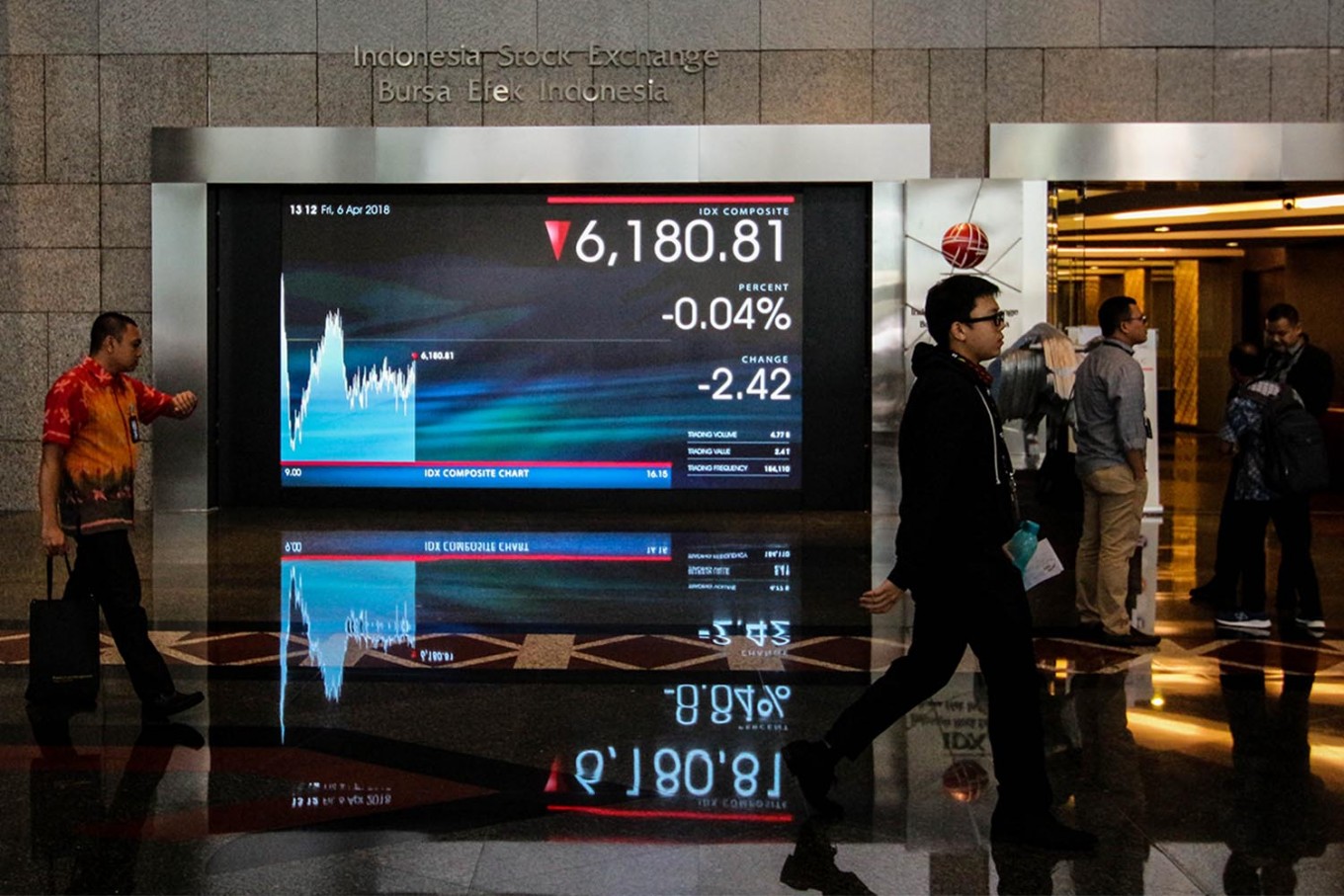Popular Reads
Top Results
Can't find what you're looking for?
View all search resultsPopular Reads
Top Results
Can't find what you're looking for?
View all search resultsIDX moves to calm stock market as Indonesia reports first coronavirus cases
The JCI, the main gauge of the IDX, has lost 7.3 percent of its value in the last week and almost dropped 15 percent so far this year, bourse data shows.
Change text size
Gift Premium Articles
to Anyone
The Indonesia Stock Exchange (IDX) has moved to calm the markets as the country reported its first two coronavirus cases on Monday.
President director Inarno Djajadi said in an emergency press briefing at noon on Monday that the bourse’s executives had met with President Joko “Jokowi” Widodo that morning to discuss the latest market situation following the global COVID-19 outbreak.
“We are also maintaining close coordination with the Financial Services Authority [OJK] in handling the situation,” he told the press in Jakarta.
Jokowi announced on Monday morning the first two COVID-19 positive cases in Indonesia, prompting the Jakarta Composite Index (JCI) to immediately slump to as low as 5,394, touching its lowest level of 5,354 during the intraday session. It slowly rebounded and closed the trading session 1.68 percent lower than its previous close at 5,361, the lowest level since February 2017.
Read also: BREAKING: Jokowi announces Indonesia’s first two confirmed COVID-19 cases
The JCI, the main gauge of the IDX, has lost 7.3 percent of its value in the last week and almost dropped 15 percent so far this year, bourse data shows.
The bourse decided to temporarily halt short selling on Monday until further notice to help anchor the index. It will stop publishing the list of stocks available for short selling and advise brokerage firms to refuse short sell requests from their clients.
Short selling is an investment or trading strategy that speculates on the decline in a particular stock or other securities price. Investors and portfolio managers often use such a strategy as a hedge against the downside risk of a long position in the same security or a related one.
“We hope that we can help make the market more stable by imposing this policy,” said Inarno.
The IDX, he went on to say, had prepared other measures, such as force-selling limits and symmetrical auto rejects, to respond to deeper falls in the stock market. However, it was of the view that there was no need at the time to implement such measures.
Read also: Disappearing act: Market braces for volatile March after $2.4b vanishes in a week
“The bourse has yet to receive applications to postpone IPOs [initial public offerings] and bond issues following drops in the JCI,” Inarno said, adding that 24 IPOs and 13 bonds issues were in the pipeline.
Chairman of the Indonesia Equity Analyst Association (AAEI) Edwin Sebayang, however, doubted that such a move as halting short selling could prevent the index from falling deeper.
“Many market players are not that interested in conducting these transactions since the bourse changed the requirements recently as they deem it to be too complex,” he said.
Foreign investors sold Rp 291.24 billion (US$20.48million) worth of Indonesian stocks more than they bought during Monday’s session. Stocks of state-owned Bank Rakyat Indonesia (BRI) recorded the largest net foreign sell of Rp 288.3 billion, followed by private lender Bank Central Asia (BCA) with a net foreign sell of Rp 97.7 billion.
Read also: ‘Triple market intervention’: BI buys bonds, rupiah to prop up prices amid viral rout
As scientists around the world have yet to find a vaccine for the novel coronavirus, Binaartha Parama Sekuritas Nafan Aji projected the JCI could go as low as 5,093 at some point this year. He also revised his JCI target to only 5,939 throughout 2020 as the virus seemed to continue spreading all across the globe.
Edwin of AAEI expressed similar concerns, saying any positive sentiment was unlikely to be able to boost the stock market’s performance this year.
“This will all depend on the government’s efforts to handle the outbreak in the future,” he said.










